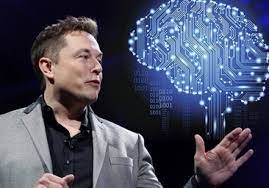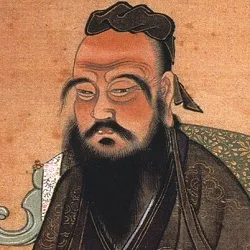- RESEARCHDistance Learning at AIU is enhanced by vast academic resources and innovative technologies build into the Virtual Campus: Hundreds of self-paced courses with video lectures and step by step lessons, thousands of optional assignments, 140,000 e-books, the Social Media & Networking platform allowing collaboration/chat/communications between students, and MYAIU develop students holistically in 11 areas beyond just academics.
- PROGRAMS OFFERED
- Areas of Study
- Courses and Curriculum
- Open Courses
- Register for a Program
- Associate Program
- Associate in Addiction Counseling
- Associate in Agriculture Food And Resources
- Associate in Anti Terrorism Security
- Associate in Behavior Analysis In Special Education
- Associate in Bioethics
- Associate in Climatology
- Associate in Cultural Theological Communication
- Associate in Culinary Arts
- Associate in Ecotechnology
- View all Associates Programs
- Bachelor Program
- Bachelors in Community Development
- Bachelors in Environmental Science
- Bachelor in Education (B.Ed, BS)
- Bachelors in Economics
- Bachelors in Entrepreneurship
- Bachelors in Financial Administration
- Bachelors in Human Resource Management
- Bachelors in Linguistics
- Bachelors in Nutritional Science
- Bachelors in Occupational Health and Safety
- Bachelors in Psychology
- View all Bachelor Programs
- Doctorate Program
- Doctor | of Biology (PhD)
- Doctorate in Business Administration (DBA, PhD)
- Doctor of Economics (PhD)
- Doctor of Electrical Engineering (D.Sc, PhD)
- Doctor of Finance (PhD)
- Doctorate in International Relations
- Doctorate in Information Technology (D.Sc)
- Doctor of Legal Studies (PhD)
- Doctor of Project Management (PhD)
- Doctor of Sociology (PhD, D.Sc)
- Doctorate in Sustainable Natural Resources Management
- View all Doctorate Programs
- Master Program
- Postdoctoral Program
- Postdoctoral in Animal Science
- Postdoctoral in Anti Terrorism Security
- Postdoctoral in Behavior Analysis In Special Education
- Postdoctoral in Bioethics
- Postdoctoral in Blockchain Technology and Digital Currency
- Postdoctoral in Business Management
- Postdoctoral in Cloud Computing
- Postdoctoral in Computer Engineering
- View all Postdoctoral Programs
AIU offers a wide range of majors in areas including the Arts, Business, Science, Technology, Social, and Human studies. More than 120 degrees and programs are available for adult learners at the associate’s, bachelor’s, master’s, doctoral and postdoctoral level. - VIRTUAL CAMPUS
Distance Learning at AIU is enhanced by vast academic resources and innovative technologies build into the Virtual Campus: Hundreds of self-paced courses with video lectures and step by step lessons, thousands of optional assignments, 140,000 e-books, the Social Media & Networking platform allowing collaboration/chat/communications between students, and MYAIU develop students holistically in 11 areas beyond just academics.
- ALUMNI
The world is YOUR campus!”, that is the message of AIU’s month magazine Campus Mundi. Hear the voices and see the faces that make up AIU. Campus Mundi brings the world of AIU to you every months with inspirational stories, news and achievements by AIU members from around the world (students and staff are located in over 200 countries).
Two Decades of Innovation: Transforming Lives and Breaking Barriers

How has the use of smartphones and social media changed your life in the past decade?
In what ways has online learning enabled you to achieve your educational and personal goals?
How could you use artificial intelligence or renewable energy technologies to contribute to a more sustainable and equitable future?
Share your ideas and experiences with us!
(Login to your student section to access the AIU Additional Resources Library.)
Two Decades of Innovation: Transforming Lives and Breaking Barriers
Over the past 20 years, the world has witnessed extraordinary advancements in technology and innovation. These developments have fundamentally transformed our lives, reshaping the way we communicate, learn, work, and interact with the world around us. At Atlantic International University (AIU), we recognize the importance of these innovations in enhancing the quality of life and driving personal and societal progress. As we reflect on the past two decades, we highlight five of the most impactful inventions and technologies that have significantly influenced society.

- The Rise of Smartphones
The smartphone stands as one of the most revolutionary inventions of the 21st century. Introduced in the early 2000s, the smartphone has evolved from a simple communication device to an essential tool for everyday life. By 2021, over 3.8 billion people worldwide were using smartphones, accounting for nearly half of the global population.
Impact on Society:
– Communication: Smartphones have revolutionized communication, making it instant and accessible. Platforms like WhatsApp, Facebook Messenger, and WeChat have enabled people to stay connected regardless of geographical barriers.
– Information Access: The smartphone provides immediate access to information and services, from news and educational resources to healthcare and financial services. This accessibility has democratized information, empowering individuals with knowledge and resources.
– Economic Growth: The smartphone industry has spurred economic growth, creating jobs and fostering innovation in related sectors such as app development, digital marketing, and e-commerce.

- The Advent of Social Media
Social media platforms have redefined how we connect, share, and interact. Starting with platforms like MySpace and Facebook in the early 2000s, the social media landscape has expanded to include Twitter, Instagram, LinkedIn, TikTok, and many others. By 2021, there were approximately 4.2 billion social media users globally.
Impact on Society:
– Connectivity: Social media has bridged distances, allowing people to maintain relationships and form new connections across the globe.
– Information Sharing: These platforms have become vital channels for information dissemination, news, and entertainment. They play a crucial role in social movements, raising awareness and mobilizing communities.
– Business and Marketing: Social media has transformed marketing strategies, enabling businesses to reach targeted audiences and engage with customers directly. Influencer marketing has also emerged as a powerful tool for brand promotion.

- The Expansion of E-Learning
E-learning has revolutionized education, making learning accessible, flexible, and personalized. This shift was accelerated by the COVID-19 pandemic, which forced educational institutions to adopt online learning models. Platforms like Coursera, Udemy, Khan Academy, and AIU’s own distance learning programs have become integral to modern education.
Impact on Society:
– Accessibility: E-learning has made education accessible to people regardless of location, socioeconomic status, or physical ability. This democratization of education has opened doors for lifelong learning and career advancement.
– Flexibility: Online education offers flexibility in terms of time and pace of learning, catering to individual needs and schedules. This flexibility is particularly beneficial for working professionals and those with other commitments.
– Customized Learning: E-learning platforms often use data analytics and AI to personalize learning experiences, adapting to the learner’s progress and preferences for a more effective educational journey.

- The Emergence of Artificial Intelligence (AI)
Artificial Intelligence (AI) has moved from the realm of science fiction to become a transformative force in various industries. From virtual assistants like Siri and Alexa to sophisticated algorithms used in healthcare, finance, and transportation, AI is shaping the future.
Impact on Society:
– Healthcare: AI is revolutionizing healthcare with applications in diagnostics, treatment planning, and personalized medicine. AI algorithms can analyze medical data to detect diseases early and recommend tailored treatment plans.
– Business Efficiency: AI enhances business efficiency through automation, data analysis, and predictive analytics. It helps companies optimize operations, improve customer service, and innovate product offerings.
– Daily Life: AI-powered technologies, such as smart home devices and autonomous vehicles, are becoming integral to daily life, enhancing convenience, safety, and efficiency.

- The Growth of Renewable Energy Technologies
The past two decades have seen significant advancements in renewable energy technologies, addressing the global challenge of climate change and sustainable development. Innovations in solar, wind, and other renewable energy sources have made clean energy more viable and affordable.
Impact on Society:
– Environmental Impact: Renewable energy reduces greenhouse gas emissions, contributing to the fight against climate change. It promotes environmental sustainability and the conservation of natural resources.
– Energy Access: Renewable energy technologies provide a reliable and cost-effective power supply, especially in remote and underserved areas. This has improved the quality of life and economic opportunities in these regions.
– Economic Development: The renewable energy sector has created jobs and stimulated economic growth. Investment in clean energy infrastructure drives innovation and supports sustainable development goals.

As we reflect on these transformative innovations, it is evident that education and research are fundamental to driving progress. At AIU, we are committed to fostering a learning environment that encourages innovation, critical thinking, and personal growth. Our experiential learning approach empowers students to take charge of their education, develop unique curricula, and pursue their passions.
How can you be part of innovation?
– Engage in Lifelong Learning: Embrace continuous learning to stay abreast of technological advancements and adapt to the changing landscape.
– Innovate for the Common Good: Use your knowledge and skills to develop innovative solutions that address societal challenges and contribute to the common good.
– Leave a Legacy: Strive to make a positive impact in your community and the world, leaving a legacy of innovation, sustainability, and personal development.
The last 20 years have shown that the most significant barriers to innovation are often internal, within organizations and individuals. By fostering a culture of open innovation, we can overcome these barriers and unlock our full potential. At AIU, we are dedicated to empowering our students to be pioneers of change, equipped with the knowledge and skills to navigate and shape the future.
For further reading on these innovations, we recommend the following articles and books:
How Social Media Has Changed the World
The Rise of E-Learning in Education
Advancements in Renewable Energy Technologies
Innovation Processes in the Social Space of the Organization
Nurturing Creativity : An Essential Mindset for Young Children’s Learning
Design Thinking: Developing Innovative Solutions to Make a Difference.
Contextual Analysis of Innovation Process Models toward the Fourth Industrial Revolution.
By embracing innovation and continuous learning, we can create a brighter future for ourselves and future generations.
Reminder to our Dear Students,
Please ensure you are logged in as a student on the AIU platform and logged into the AIU Online
Library before accessing course links. This step is crucial for uninterrupted access to your learning
resources.
AIU Success Stories







Contact Us Today!
Begin Your Journey!
AIU’s Summer of Innovation and Growth gives you the ability to earn up to $5000 in tuition credit by completing free lessons and courses.
Whether you’re looking to acquire new skills, advance your career, or simply explore new interests, AIU is your gateway to a world of opportunities. With free access to 3400 lessons and hundreds of courses the ability to earn credits and earn certificates there’s no better time to start learning.
Join us today as a Guest Student and take the first step towards a brighter, more empowered future.
Explore. Learn. Achieve.

Contact Us
Atlantic International University
900 Fort Street Mall 905 Honolulu, HI 96813 info@aiu.edu
Quick Links
Home | Online Courses | Available Courses | Virtual Campus | Career Center | Available Positions | Ask Career Coach | The Job Interview | Resume Writing | Accreditation | Areas of Study | Bachelor Degree Programs | Masters Degree Programs | Doctoral Degree Programs | Course & Curriculum | Human Rights | Online Library | Representations | Student Publication | Sponsors | General Information | Mission & Vision | School of Business and Economics | School of Science and Engineering | School of Social and Human Studies | Media Center | Admission Requirements | Apply Online | Tuition | Faculty & Staff | Distance Learning Overview | Student Testimonials | AIU Blogs | Register for Program | Privacy Policy | FAQ



















